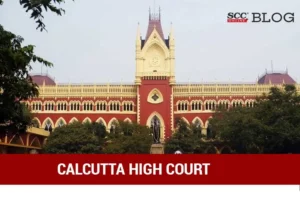Calcutta High Court: In an appeal challenging the order dismissing the writ petition contesting the re-assessment order issued under Section 147 of the Income Tax Act, 1961 (the Act), a division bench comprising of T.S. Sivagnanam,* CJ., and Hiranmay Bhattacharyya, J., held that since, the appellant did not question the initiation of the reopening of the assessment under Section 148A (b) of the Act or challenge the order passed under Section 148(d) of the Act, therefore, the appellant is precluded from questioning the correctness of the order passed under Section 148A (d) of the Act. The Court dismissed the appeal, and the liberty is reserved for the appellant to raise all points before the appellate authority if intending to file an appeal against the re-assessment order.
In the instant matter, the appellant, an unsuccessful writ petitioner, filed an appeal challenging the order dated 26-07-2023, which dismissed the writ petition contesting the re-assessment order issued under Section 147 of the Act, dated 31-05-2023, for the Assessment Year 2014-15. The Single Bench, after considering the arguments presented by the appellant, referred to Sabh Infrastructure Ltd. v. Asst. CIT, 2017 SCC OnLine Del 10863, distinguishing the cited case and held that a writ court cannot delve into factual findings or act as an assessing or appellate authority.
The appellant argued extensively over procedural errors from the issuance of notice under Section 148A (b) of the Act to the final re-assessment order. It was contended that there was a violation of natural justice, as the detailed response to the notice under Section 142(1) and the show-cause notice dated 29-05-2023 were allegedly not considered adequately. The appellant sought cross-examination of the parties involved and access to related materials, which were not provided by the assessing officer. The appellant also highlighted the assessment order under Section 143(3) of the Act dated 01-09-2016, arguing that there was no justification for reopening the assessment.
The respondent argued that the Single Bench rightly dismissed the writ petition due to the availability of an alternate remedy. The respondent emphasised that the issues raised by the appellant were factual matters that should be addressed before the appellate authority and were not suitable for a fact-finding exercise in a writ proceeding.
After an elaborate hearing and a careful consideration of the materials, the Court found that the appellant did not contest the initiation of the assessment reopening and, therefore, could not question the correctness of the order passed under Section 148A (d) of the Act at this stage.
The Court agreed with the Single Bench’s reasoning that the re-assessment order, being appealable, should be challenged before the appellate authority. The Court highlighted that the factual disputes raised by the appellant can be appropriately addressed by the appellate authority. The Court distinguished the cited precedents, emphasising that they are not directly applicable to the facts of the present case.
Consequently, the court dismissed the appeal, preserving the liberty for the appellant to raise all points before the appellate authority without being barred by the dismissal of the writ petition.
[Ananda Bag Tea Co. Ltd. v. Union of India, 2024 SCC OnLine Cal 693, order dated 25-01-2024]
*Judgment by Chief Justice T.S. Sivagnanam
Advocates who appeared in this case:
Mr. Pranit Bag, Mr. Pradeep Jewrajka, Ms. Pooja Jewrajka, Counsel for the Appellant
Mr. Aryak Dutt, Sr. Standing Counsel, Counsel for the Respondent/State

